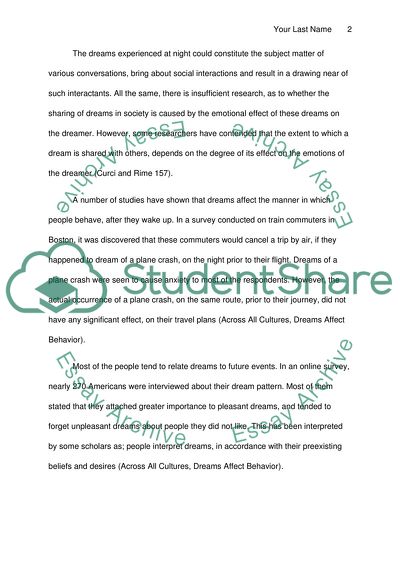Cite this document
(Influence of Dreams on the Lives of People Research Paper, n.d.)
Influence of Dreams on the Lives of People Research Paper. Retrieved from https://studentshare.org/psychology/1738551-how-dreams-affect-peoples-life-in-america
Influence of Dreams on the Lives of People Research Paper. Retrieved from https://studentshare.org/psychology/1738551-how-dreams-affect-peoples-life-in-america
(Influence of Dreams on the Lives of People Research Paper)
Influence of Dreams on the Lives of People Research Paper. https://studentshare.org/psychology/1738551-how-dreams-affect-peoples-life-in-america.
Influence of Dreams on the Lives of People Research Paper. https://studentshare.org/psychology/1738551-how-dreams-affect-peoples-life-in-america.
“Influence of Dreams on the Lives of People Research Paper”, n.d. https://studentshare.org/psychology/1738551-how-dreams-affect-peoples-life-in-america.


